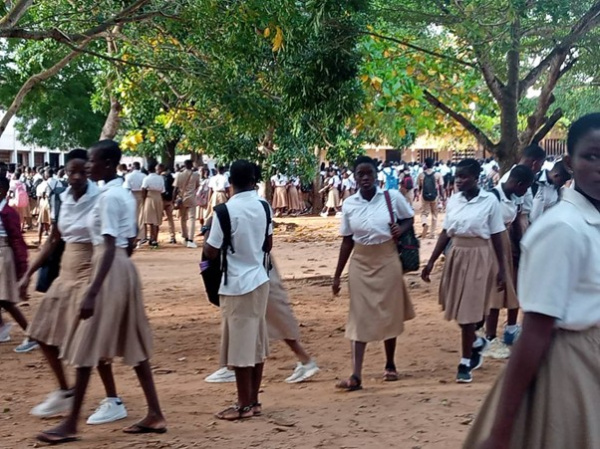Togo school reforms inspire hope as more than three million students returned to classrooms on Monday, September 15, 2025. The reopening marked the end of a long two-month vacation and opened a new chapter for the country’s education system. Public, private, and religious institutions all welcomed learners back, but this return was different. It came with reforms designed not only to modernize schools but also to equip children with stronger skills for the future.
One of the most important changes is the introduction of English language teaching in CM1 and CM2 classes. Authorities plan to expand this gradually, making English part of every preschool and primary school program starting from the 2025–2026 school year. Officials explained that this reform aims to prepare students for a globalized environment where foreign language skills, especially English, provide competitive advantages. By learning earlier, children can build fluency and confidence that will support them throughout their studies and careers.
Read more: Togo Launched Second Phase of Business Census
Moreover, this reform represents more than a linguistic shift. It also signals a forward-looking vision for Togo’s development. In a world where cross-border collaboration drives progress, language skills become tools for opportunity. English opens doors to international education, business, and innovation. With this change, Togo is not just teaching words but also opening pathways for its young citizens. Leaders believe this effort will empower students to compete regionally and globally while also strengthening national growth.
The return to school also allowed families, teachers, and students to reflect on the broader importance of education. Parents expressed hope that the reforms would give their children a better future. Teachers welcomed the shift as a chance to enhance classroom relevance. For students, the excitement of reuniting with friends and beginning a fresh academic year mixed with curiosity about the new curriculum. This blend of emotions captured the energy of a sector undergoing renewal.
Furthermore, the reforms highlight government determination to tackle long-standing challenges in education. Authorities acknowledged that Togo must adapt its system to meet modern demands. Beyond languages, the government is exploring improvements in infrastructure, teacher training, and curriculum updates. Each of these steps matters because quality education builds not only skilled individuals but also strong societies. By linking reforms to national priorities, Togo is signaling that its future lies in the hands of well-prepared learners.
In addition, the extension of English in schools reflects lessons from other nations. Many African countries have integrated international languages into their systems to strengthen competitiveness. Togo is now aligning with that trend while maintaining its cultural identity. This balance between global readiness and national values reflects a thoughtful approach. Policymakers want to ensure that students embrace the world without losing touch with their roots.
The timing of the reforms also holds significance. The post-vacation return symbolizes fresh starts, and linking it with innovation reinforces momentum. Students come back not only to lessons but also to a vision of progress. This connection can inspire communities to value education even more. With consistent follow-through, these reforms can transform attitudes and outcomes across the country.
Ultimately, Togo school reforms inspire hope because they embody ambition, foresight, and commitment. By focusing on language skills and long-term preparation, the government is sending a clear message that education matters. For millions of students, these changes open opportunities to learn, grow, and dream bigger. For the nation, they represent investment in a generation that will shape tomorrow. Togo’s classrooms now stand as spaces not only for learning but also for building a brighter, more connected future.






